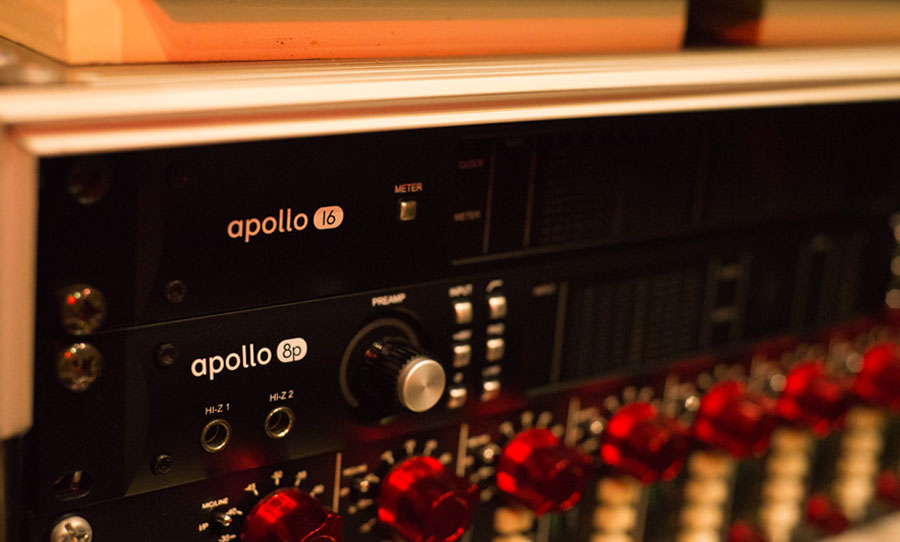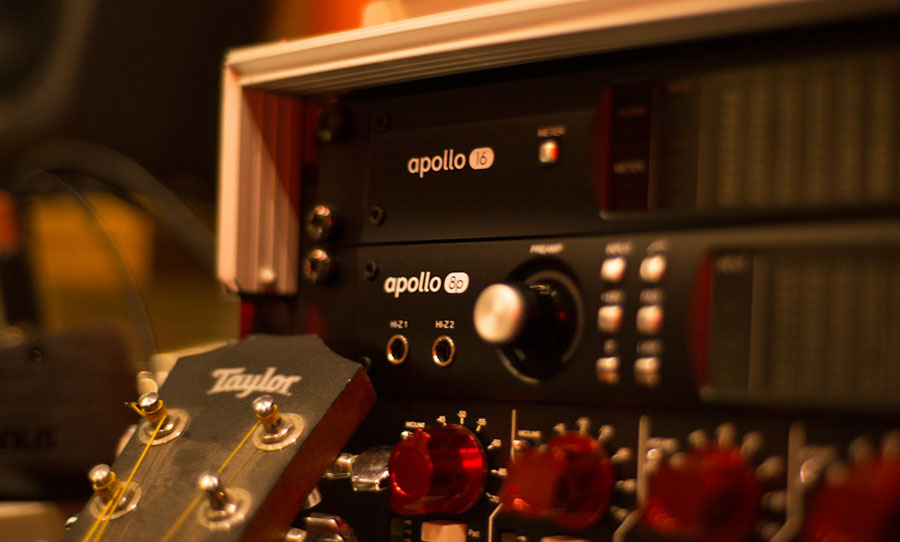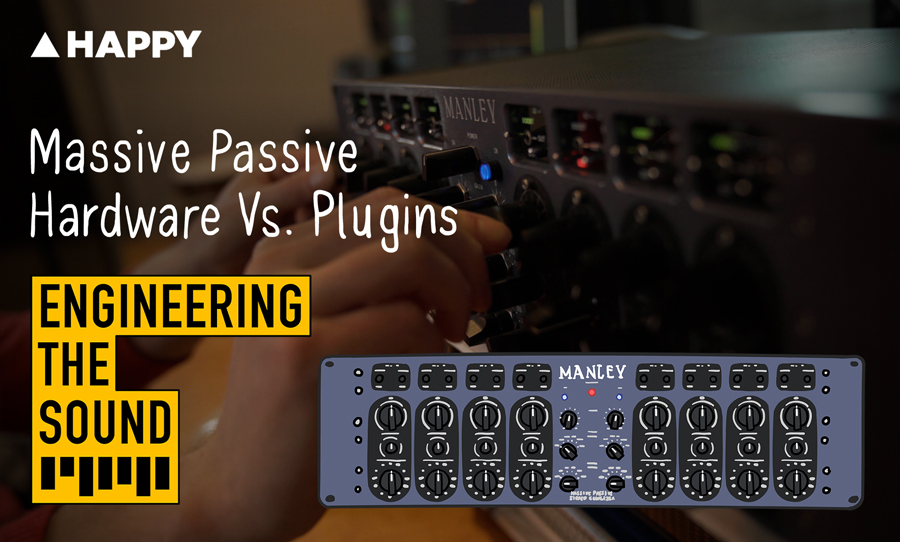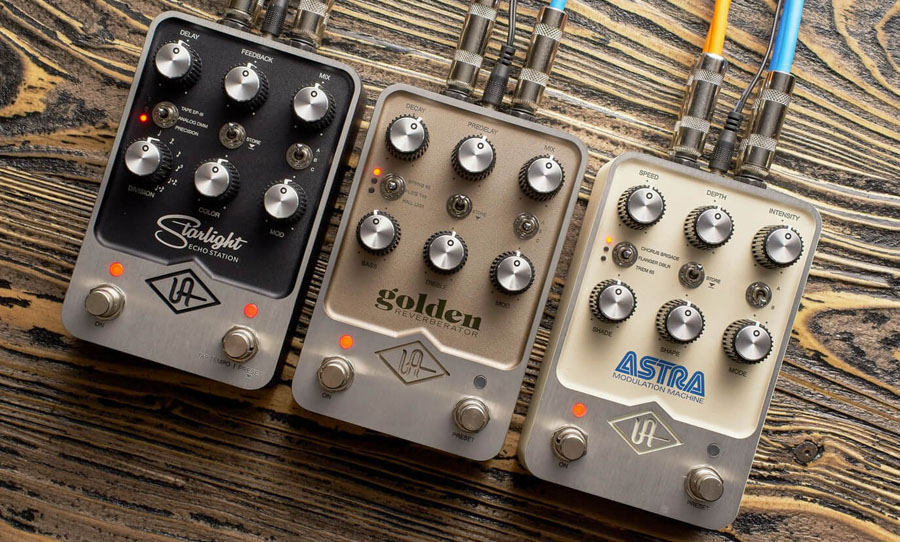As the recording studio becomes increasingly digitised, the importance of good quality analog to digital to conversion has become paramount. In some ways, the development of the converter (including the Apollo series over the last decade has been a microcosmic reflection of the evolution of technology in general: components become cheaper and more powerful at an alarming speed.
There is now a multitude of manufacturers creating converters that routinely sample audio at 192k and higher, featuring versatile connectivity and operating with a minimum of latency. So what makes one different from another? Here we take a look at the Universal Audio Apollo 8P and 16, and discuss a few features that make their converters slot well into a studio signal path.
The importance of powerful, seamless analog to digital conversion has never been more paramount, and the Universal Audio Apollo 16 and 8P are shining examples of this technology done right. Here’s why.
Power
Universal Audio has long had an industry-leading reputation in the field of outboard. It’s little surprise that their foray into the world of converters in the form of the Apollo series has been a bold one. Their approach incorporates DSP chips for the processing of UA plugins. The advantage being that you can record or monitor with plugins without incurring extra latency, or overloading your computer’s processors. Obviously, this becomes helpful in the mix stage as well, as more of your native CPU will be freed up to handle more third-party plugins.
Plugins
Universal Audio have invested big in plugin development and now offers a collection of almost one hundred, ranging from EQ and compression, to guitar amp emulation and tape machine simulation. Though you don’t need to be using an Apollo to use their plugins in the mix, you’ll need one take advantage of the real time monitoring and recording that its dedicated DSP provides. These plugins focus on emulations of classic hardware and have collectively earned a reputation as a favourite among engineers who desire the flavour of the analog classics, with the flexibility of being in the box.
Unison Technology
Some of the plugin range from UA feature what they call Unison technology. This means that the plugin’s behaviour matches the impedance, gain-staging and circuitry that is unique to the hardware, making these emulations even more closely related to the genuine article. Featuring plugins based on designs by Neve, API, Manley and a version of their own UA 610, the range is designed to recreate the analog warmth of these preamps and channel strips.
The 16 and 8P Combo
Each of the Apollos offers something slightly different in terms of I/O count, expandability and internal preamps. The 16 stands for the amount of line inputs and outputs that it possesses, but you’ll need to place your own analog preamps before it in the chain. It connects to your computer via Thunderbolt and is able to link up with other Apollos, also via Thunderbolt.
The 8P is perhaps slightly more versatile as it offers eight unison enabled preamps with two hi-z inputs and two headphone outputs. It offers less I/O, but a more complete, one stop solution for small recording sessions. When the two are linked together, they are both able to be viewed as one continuous array of channel strips in the Console software.
Console
The aforementioned Console is the hub for the operation of the Apollos. Like the design of their plugins, the layout of Console should make operators used to a traditional desk feel right at home. Cue mixes and auxiliary sends are taken care of within Console, which makes it convenient for tracking ensembles and sending effects within cue sends to different players, all without burdening your computer’s native processors. Recording or monitoring is able to be toggled globally or per channel, providing for a versatile approach to committing effects in the signal chain.
With these features, Universal Audio have taken an innovative, yet practical approach to the essential task of conversion in a digitally based studio. They’ve sought to offer a holistic solution that incorporates plugin and preamp design, optimising the connection between digital and analog realms, while providing extra grunt in the form of dedicated DSP. Hard to beat for versatility, stability and quality of sound.


